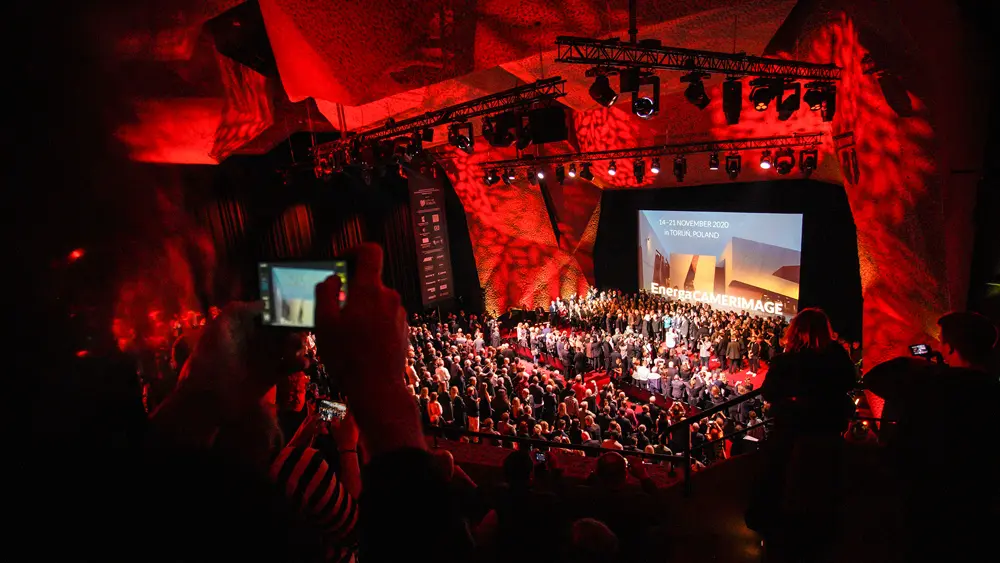Camerimage controversy: Festival director’s comments spark backlash
As the prominent cinematography festival, Camerimage, gears up to open on Friday, Women in Cinematography, an advocacy group for female Directors of Photography (DPs), is calling for significant reforms. The urgency of these demands has been amplified by a contentious column penned by the festival director, igniting a discourse on gender representation and artistic standards.
A divisive prelude
The controversy begins
In an article published in a film magazine, the festival director suggested that increasing the number of female cinematographers and directors might compromise the quality of films showcased at the festival. He questioned whether creating space for social change should come at the cost of excluding ”works and artists with outstanding artistic achievements.”
Artistic vs. social values
The director defended Camerimage by comparing it to other major festivals like Cannes, Berlin, and Venice. While these festivals might face criticism for succumbing to political or ideological trends, he argued that Camerimage remains steadfast in prioritizing artistic merit above all else.
Reaction from the industry
British Society of Cinematographers’ response
The column’s content and the tone alarmed members of the British Society of Cinematographers (BSC). In an open letter, they expressed disheartenment and anger, labeling the remarks as profoundly misogynistic and symptomatic of deep-rooted prejudice. They emphasized the need for a film festival to support and encourage all aspects of cinematography, rather than undermine specific groups.
The director’s rebuttal
In defense, the director declared the accusations of misogyny misplaced and offensive. Highlighting his commitment to respect and equality, he asserted that the festival has always aimed to feature the best of contemporary cinema, irrespective of the creators’ gender. He clarified that his statements were misinterpreted, having nothing to do with disrespect towards women.
Calls for change
Diversity and inclusion policy
In response to the backlash, Camerimage collaborated with Women in Cinematography to develop a diversity and inclusion policy, now posted on the festival’s website. However, critics argue that this sudden adoption seems reactionary rather than genuine, as the policy only surfaced after significant public and international pressure.
Accolades and omissions
Women in Cinematography illuminated glaring omissions from the festival’s lineup, listing acclaimed films by female cinematographers excluded from the competition. “Mudbound”, shot by Rachel Morrison, was relegated to a special screening despite its critical acclaim, while “The Power of the Dog”, lensed by Ari Wegner, earned an Academy Award nomination but was also overlooked for major competition.
Persistent underrepresentation
Statistics reveal that only 3.1% of films selected for the main competition in the last three decades have been shot by women. Activists have repeatedly urged Camerimage to expand its inclusion initiatives beyond occasional diversity panels. Proposals from the IMAGO D&I committee, submitted last year, suggested revamping the selection process to prevent sidelining female and minority cinematographers. None of these initiatives were implemented.
Industry and public reaction
Open criticism and petitions
Women in Cinematography’s dissatisfaction led them to launch a petition, demanding broader inclusion practices at the festival. This campaign argues that the recent policy updates were not genuine reflections of Camerimage’s commitment to diversity, but rather a shield against rightful criticism.
Voices from the industry
Notable voices in the industry, including famed cinematographer Reed Morano, expressed their disappointment on social media. Morano highlighted the paradox in the festival’s stance: if mediocrity was an issue, it was not limited to female-created works. She lamented the outdated mindset that seemed to permeate Camerimage, holding that a man deserves a cinematography spot more than a woman.
Moving forward
The ongoing debate at Camerimage Festival is more than just a squabble over policy—it’s a crucial juncture for the cinema world. The dialogue surrounding the festival emphasizes the pressing need for inclusive practices that genuinely recognize artistic talent, irrespective of gender. As the festival unfolds, the spotlight will be on how it navigates these challenges and shapes the future of cinematography.
Passionate about cinematography or keen on industry discussions? Share this article on social media or follow us for the latest updates on how the dynamics within the film world continue to evolve.

 Italian
Italian







